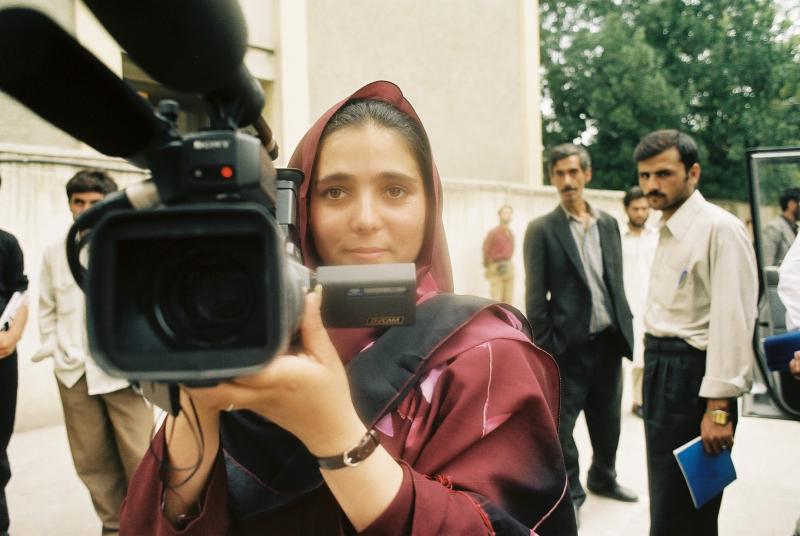The explosion of on line journalism, blogging and social media has given anyone the technical capacity to become a news publisher, putting the spotlight on the key issues of training and safety.
Launched in 2006, the European Instrument for Democracy and Human Rights (EIDHR) provides support for the promotion of democracy and human rights in non-EU countries. It sees the media as a vital part of a democratic society both as an actor watching over decision makers, checking on public spending and as a platform for other actors to voice opinion.
In April, the EIDHR held a one day session on Media and Freedom of Expression at its 2013 forum in Brussels, where participants deliberated some of the key issues related to the European Commission’s engagement in media development and the promotion of freedom of expression.
Working at parallel round tables, they focused on fragile states, election support, accountability and protection of journalists. Common entry points for discussion were how to address the context, challenges of project implementation and experiences of results delivery.
They concluded that support for media should be flexible enough to address the constraints linked to working in countries affected by crisis or conflict. They also said that support should be aligned with coherent political action, such as setting up a political dialogue with authorities.
Participants also pressed for coordination and knowledge sharing between the stakeholders, who include the EU member states, EU services, donors and civil society organisations (CSOs).
“The EU has an important role to play [vis a vis] the attempt by those in power of silencing the media,” said Etienne Claeye, Head of the Democracy sector of EuropeAid, in his opening remarks at the session.
“EuropeAid is embedding media increasingly in broader development and other activities, such as election work. We see media having a key role to play as platform for ideas exchanges,” explained George Dura, from the Democracy sector of EuropeAid. “For domestic accountability, media is also crucial on checking how money is spent. Media cannot be considered in isolation. We want to have a more strategic approach to media support, embed media in broader democracy programs as a cross-cutting issue,” he added.
Journalists and bloggers who work in harsh media environments, such as Syria, Egypt, Iraq, Iran and Eritrea, shared their experiences during a session moderated by James Deane, a member of the Global Forum for Media Development and a director of BBC Media Action, the BBC’s international charity that supports the capacity of the media in 24 different countries (with EU contributions).
They proposed that support to media should go alongside political dialogue with authorities in partner countries, and that any support to media should not be isolated but should come as part of a broad mechanism that includes calls for proposals, and that support is organised within a long-term strategy.
One of the bloggers at the forum – whose name is retained for security purposes - mentioned that 300 trainings of so-called “citizen journalists” have happened in Turkey since the start of the unrest in neighbouring Syria, but more coordination among the training organisations would be welcome, in order to build a proper media institution with common practices.
James Deane said that the way that the media is supported has changed considerably as experience has been built, and indeed training now tends to be mainstreamed as part of broader media-support.
“The main challenges are making sure that there are clear sustainable impacts and making sure that the right people are engaged in the training,” he said.
Participants agreed that media training cannot be separated from the environment in which the work will take place. “Unless you are creating an environment where journalists can operate as journalists, you will not achieve very much. (…) You do have to have joined up holistic strategies that enable real change to happen,” Deane continued.
He referred to the example of Kenya, where violence was allegedly incited by small regional media in the post-2007 election crisis, and said that it is also important to organise trainings for smaller media organisations outside the capital, in order to have an impact on society as a whole.
Participants also voiced the opinion that with so many media organisations, some with their own political agenda, it is not always easy to provide training to the appropriate organisations.
The EIDHR Forum provided the opportunity for Chrystelle Lucas, Programme Manager at EuropeAid, to present the on-going call for proposals within the “Media and Culture for Development in the South Mediterranean” regional programme, which has budget allocated to the enhancement of a more independent media sector, both on and off line, in the South Mediterranean region.
“We are expecting to receive proposals facilitating the development or the creation of regional platforms that bring together national authorities, CSOs and media representatives to cooperate to enhance the role of the media, supporting the exchange of best practices for the Southern Mediterranean region as well as supporting the development of training courses in media management,” she said. “All those proposals shall have a regional dimension involving at least six countries from the Maghreb and the Middle East.”
Ms Lucas said that one of the aims is to support many different projects by promoting sub-granting. “Seventy five per cent of the funding shall be redistributed to other organisations, and the applicants shall be very explicit in the way they will redistribute the funds to other organisations,” she explained.
She also stressed that one of the aims of the regional programme is “to support the state media to become public media (…) which would really present the point of view of the different tendencies, the different political parties and the different ways of thinking within the countries.”
In his concluding remarks, Mr Etienne Claeye underscored timeliness of the discussions and that EuropeAid is looking for possibilities to organise a follow up meeting later in the year.
This collaborative piece was drafted with input from Chrystelle Lucas, Etienne Claeye, George Dura and Christina Dahlman, with support from the capacity4dev.eu Coordination Team.


Log in with your EU Login account to post or comment on the platform.